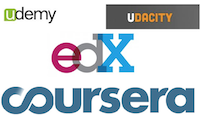Understanding Hybrid-MOOC Effectiveness with a Collective Socio-Behavioral Model
 Online courses for high school students promise the opportunity to bring critical education to youth most at need, bridging gaps which may exist in brick-and-mortar institutions. In this work, we investigate a hybrid Massive Open Online Course for high schoolers which includes an in-person coaching component. We address the efficacy of these courses and the contribution of in-person coaching. We first analyze features of student behavior and their effect on post-test performance and then propose a novel probabilistic model for inferring student success on an AP exam post-test. Our proposed model exploits relationships between students to collectively infer student success. When these relationships are not directly observed, we formulate latent constructs to capture social dynamics of learning. By collectively inferring student success as a function of both unobserved individual characteristics and relational dynamics, we improve predictive performance by up to 6.8% over an SVM model with only observable features. We propose this general socio-behavioral modeling framework as a flexible approach for including unobserved aspects of learning in meaningful ways, in order to better understand and infer student success.
Online courses for high school students promise the opportunity to bring critical education to youth most at need, bridging gaps which may exist in brick-and-mortar institutions. In this work, we investigate a hybrid Massive Open Online Course for high schoolers which includes an in-person coaching component. We address the efficacy of these courses and the contribution of in-person coaching. We first analyze features of student behavior and their effect on post-test performance and then propose a novel probabilistic model for inferring student success on an AP exam post-test. Our proposed model exploits relationships between students to collectively infer student success. When these relationships are not directly observed, we formulate latent constructs to capture social dynamics of learning. By collectively inferring student success as a function of both unobserved individual characteristics and relational dynamics, we improve predictive performance by up to 6.8% over an SVM model with only observable features. We propose this general socio-behavioral modeling framework as a flexible approach for including unobserved aspects of learning in meaningful ways, in order to better understand and infer student success.







